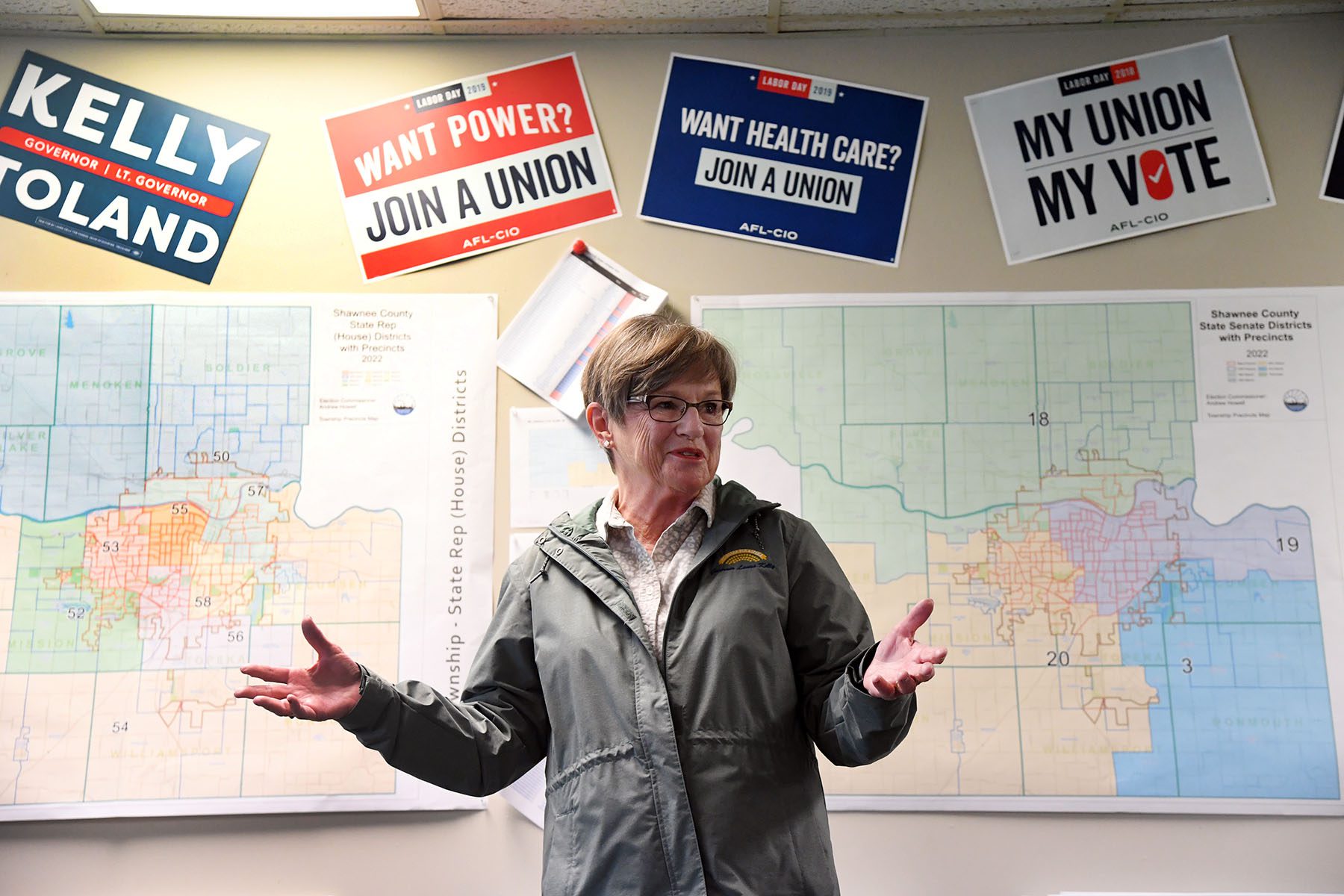We’re making sense of the midterms. Subscribe to our daily newsletter for election context and analysis.
Kansas, which became a destination for people seeking abortions after Roe v. Wade was overturned, has re-elected Democratic Gov. Laura Kelly to another four-year term Decision Desk HQ projects.
Kelly hardly mentioned abortion in her re-election campaign, but has emerged in the past four years as a last line of defense for abortion providers, vetoing bills that would limit access to the procedure. Her reelection increases the likelihood that the state remains a major abortion access point.
She was challenged by Republican Attorney General Derek Schmidt, who focused his campaign largely on inflation and sought to tie Kelly to President Joe Biden, who lost Kansas in 2020 by double digits and who remains unpopular in the state.
Kansas, situated near Missouri, Texas, Oklahoma and Arkansas — all of which have banned abortion — has seen its number of abortions performed go up by more than almost any other state, per one recent study. This August, 36 percent more abortions were performed in Kansas than in April, second to only North Carolina. The increase is likely a product of more and more people traveling to Kansas to terminate their pregnancies.
But Kelly will govern alongside a Republican-run statehouse that has grown increasingly hostile to abortion rights in recent years. Even with a Democrat in the governor’s mansion, Republicans hold a supermajority in both chambers of the legislature — enough, if they stay united, to override Kelly’s veto.
Kansas is still unlikely to enact a law completely banning abortion. This summer, voters decisively rejected a measure that would have amended their state constitution to eliminate abortion rights protections. The Kansas Supreme Court has previously ruled that the state’s constitution, which protects “bodily autonomy,” also confers the right to an abortion.
Still, abortion and reproductive health are expected to remain a target for the Republican legislature. Some state lawmakers have suggested they may try to pass a law restricting abortions after 15 or 20 weeks, though it’s unclear if the state’s court would allow such restrictions to take effect.
“What we know is we have a strong legal backing to say this is unconstitutional and it wouldn’t go anywhere,” said Myfy Jensen-Fellows, director of advocacy for the Wichita-based clinic Trust Women.
Abortion providers in the state are also keeping an eye out for legislative efforts to limit who can dispense contraception, including emergency contraception, or bills that would restrict access to gender affirming care. All are services the state’s abortion clinics also provide.
There are also ways to restrict abortion without passing bans. In other states, lawmakers have imposed limitations on how clinics operate — multiple-day wait requirements for an abortion, or stipulations on disposing fetal tissue — that do not technically ban the procedure but make it harder to provide. (There has so far been little discussion in Kansas about these kinds of restrictions.)
Still, if passed they could have a meaningful impact. Abortion clinics in Kansas have been overwhelmed in the months since Roe was overturned, with patients traveling to the state from all of its neighbors.
Wait times are typically at least two weeks for an appointment, though clinics say they receive well more calls than they are able to answer.






